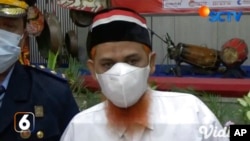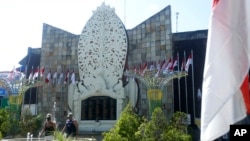Australia has reacted with shock and dismay after confirmation that the bombmaker for the Bali terror attack in 2002 has again had his prison sentence reduced. Two hundred and two people, including 88 Australians, died in the attack in October 2002, along with victims from Indonesia, Britain, the United States and other countries.
Umar Patek, a member of the al-Qaida-linked Jemaah Islamiyah militant group, was jailed for 20 years in 2012.
He was convicted of making the bombs that tore through two nightclubs a decade earlier on the Indonesian island of Bali. Two hundred and two people were killed, including 88 Australians. Last week, he was granted the latest of several small cuts to his sentence as part of remissions given to inmates to mark Indonesia's August 17 Independence Day holiday. He is now eligible for parole this month because he has served two-thirds of his prison sentence.
Patek was one of Asia’s most wanted men and was on the run for almost a decade before he was arrested in Pakistan. Officials insist he has been deradicalized.
Indonesia’s Justice Ministry must give final approval for his release.
In Australia, there is anger and dismay that one of the key architects of the Bali attack could soon walk free.
Australian Prime Minister Anthony Albanese.
“This will be of concern for the families involved," said Albanese. "We continue to make diplomatic representations in Australia’s interests and will continue to do that across a range of issues relating to security and relating to sentences.”
Bali bombing mastermind Hambali, also known as Encep Nurjaman, is being held at the U.S. facility at Guantanamo Bay in Cuba and has been awaiting trial since 2006. Three other key conspirators were executed in November 2008. Others were killed by Indonesian police before facing trial.The Bali bombings deeply affected Australia. The Indonesian island was a popular tropical vacation destination. The attack shattered Australia’s sense of isolated security. While the bombings were not carried out on Australian soil, they felt too close to home.
The victims came from more than 20 countries, including Brazil, Germany, Japan and New Zealand.





